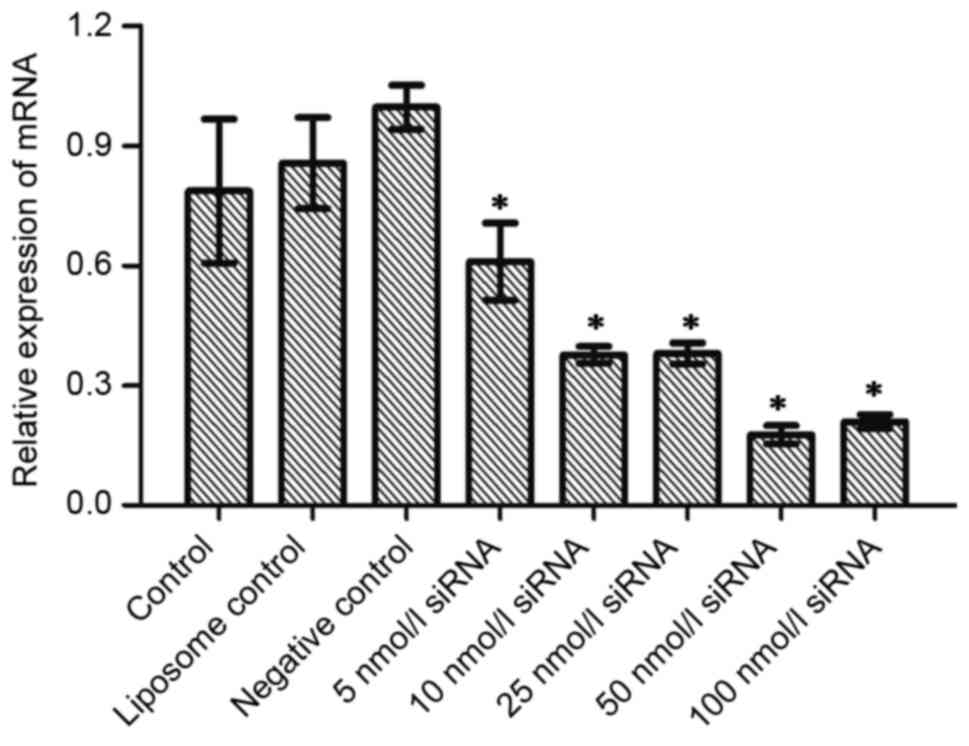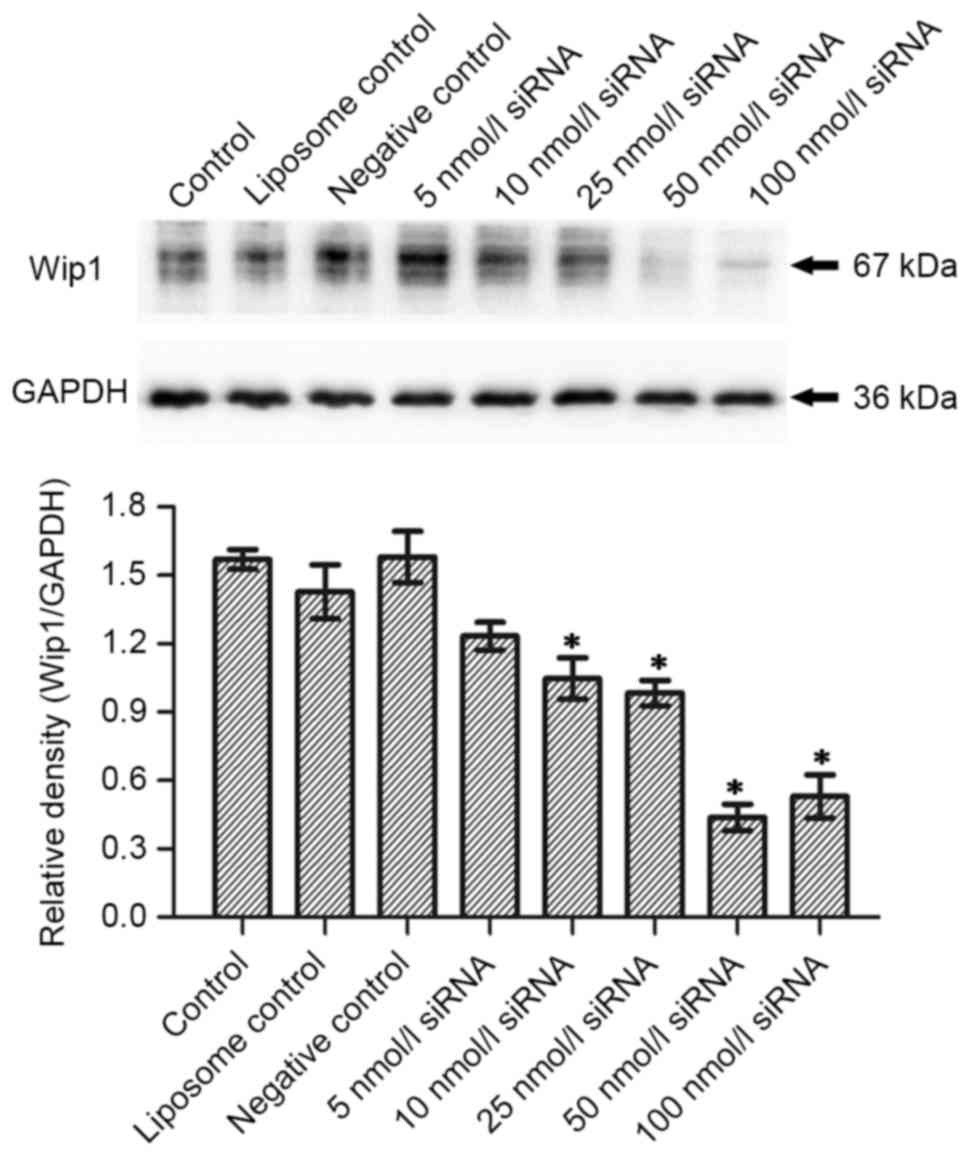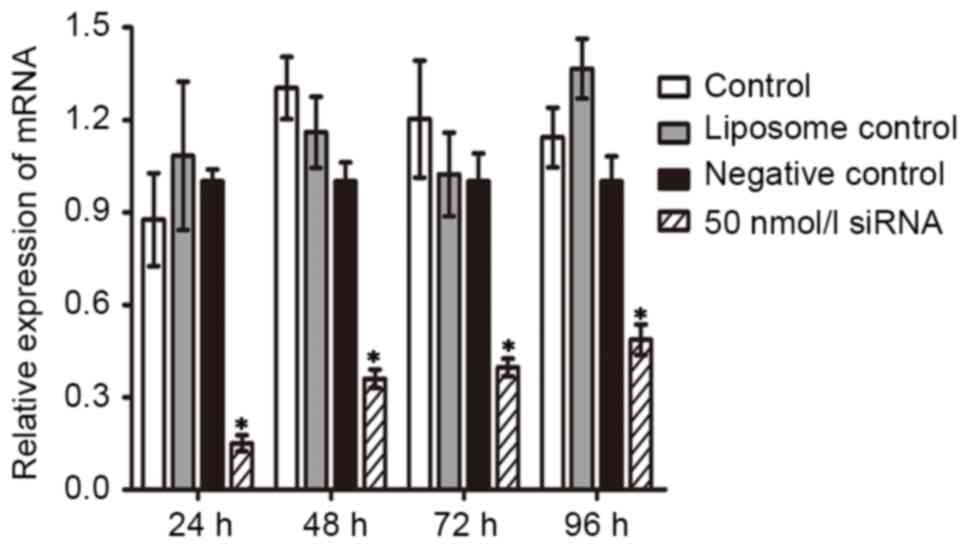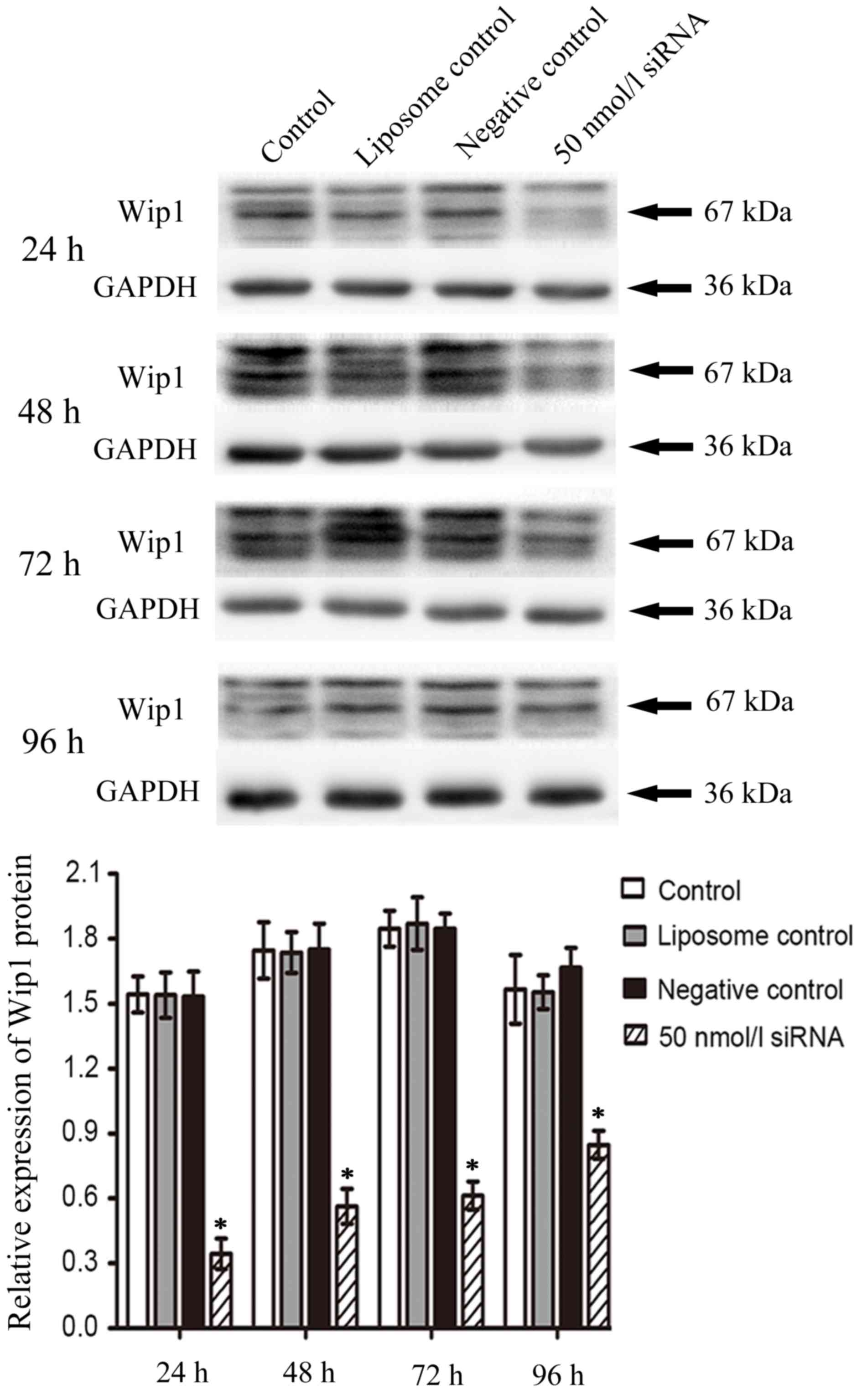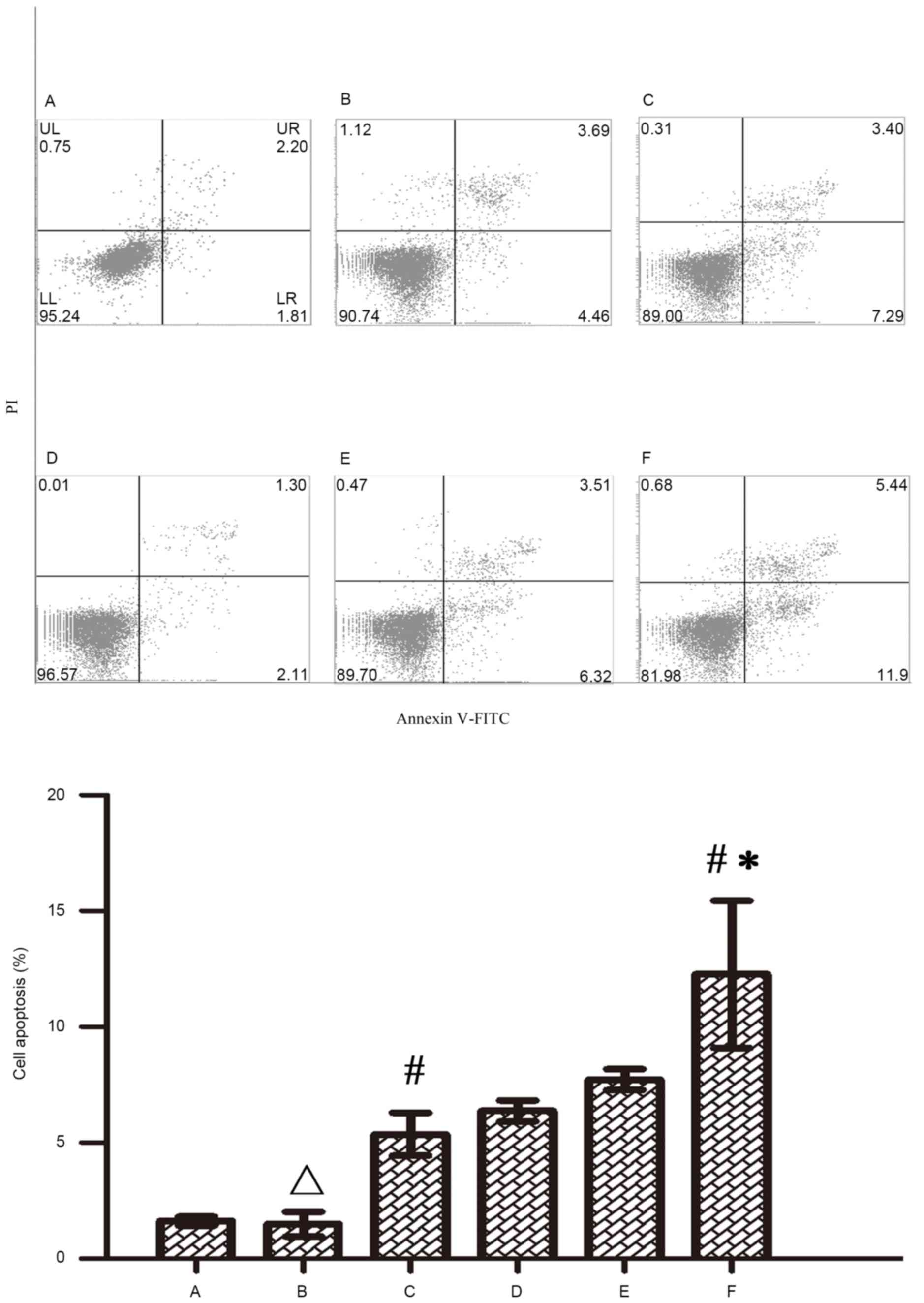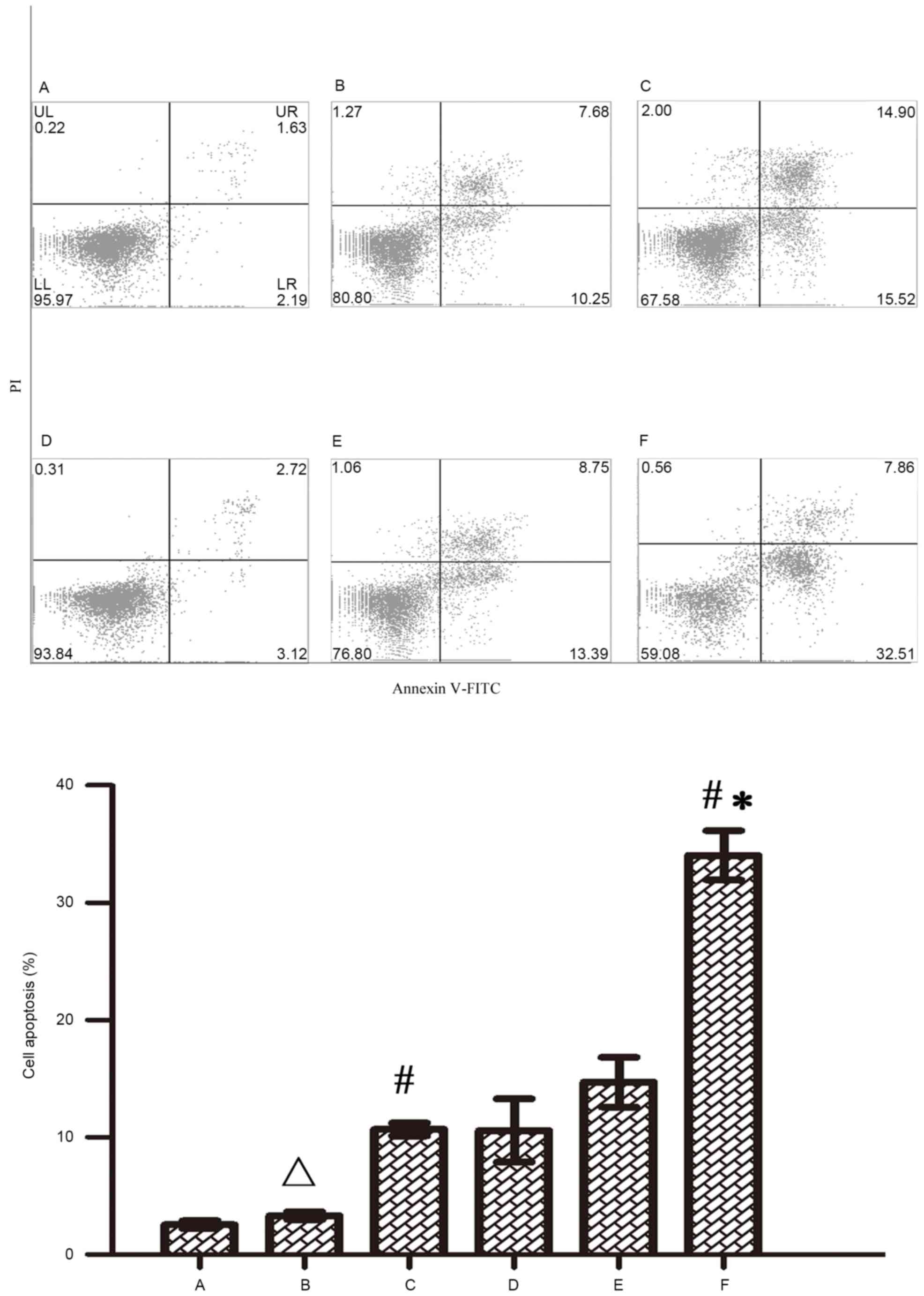|
1
|
Wiseman M: The second world cancer
research Fund/American institute for cancer research expert report:
Food, nutrition, physical activity, and the prevention of cancer: A
global perspective. Proc Nutr Soc. 67:pp. 253–256. 2008; View Article : Google Scholar : PubMed/NCBI
|
|
2
|
Douillard JY, Cunningham D, Roth AD,
Navarro M, James RD, Karasek P, Jandik P, Iveson T, Carmichael J,
Alakl M, et al: Irinotecan combined with fluorouracil compared with
fluorouracil alone as first-line treatment for metastatic
colorectal cancer: A multiple multicentre randomised trial. Lancet.
355:1041–1047. 2000. View Article : Google Scholar : PubMed/NCBI
|
|
3
|
Redmond SM, Joncourt F, Buser K, Ziemiecki
A, Altermatt HJ, Fey M, Margison G and Cerny T: Assessment of
P-glycoprotein, glutathione-based detoxifying enzymes and
O6-alkylguanine-DNA alkyltransferase as potential indicators of
constitutive drug resistance in human colorectal tumors. Cancer
Res. 51:2092–2097. 1991.PubMed/NCBI
|
|
4
|
Van de Vrie W, Gheuens EE, Durante NM, De
Bruijn EA, Marquet RL, Van Oosterom AT and Eggermont AM: In vitro
and in vivo chemosensitizing effect of cyclosporine A on an
intrinsic multidrug-resistant rat colon tumour. J Cancer Res Clin
Oncol. 119:609–614. 1993. View Article : Google Scholar : PubMed/NCBI
|
|
5
|
Xia Z, Zhu Z, Zhang L, Royal C, Liu Z,
Chen Q and Adam BL: Specific reversal of MDR1/P-gp-dependent
multidrug resistance by RNA interference in colon cancer cells.
Oncol Rep. 20:1433–1439. 2008.PubMed/NCBI
|
|
6
|
Damiani D, Michieli M, Michelutti A, Melli
C, Cerno M and Baccarani M: D-verapamil downmodulates
P170-associated resistance to doxorubicin, daunorubicin and
idarubicin. Anticancer Drugs. 4:173–180. 1993. View Article : Google Scholar : PubMed/NCBI
|
|
7
|
Fiscella M, Zhang H, Fan S, Sakaguchi K,
Shen S, Mercer WE, Woude GF Vande, O'Connor PM and Appella E: Wip1,
a novel human protein phosphatase that is induced in response to
ionizing radiation in a p53-dependent manner. Proc Natl Acad Sci
USA. 94:pp. 6048–6053. 1997; View Article : Google Scholar : PubMed/NCBI
|
|
8
|
Shi Y: Serine/threonine phosphatases:
Mechanism through structure. Cell. 139:468–484. 2009. View Article : Google Scholar : PubMed/NCBI
|
|
9
|
Donehower LA: Phosphatases reverse
p53-mediated cell cycle checkpoints. Proc Natl Acad Sci USA.
111:pp. 7172–7173. 2014; View Article : Google Scholar : PubMed/NCBI
|
|
10
|
Lu X, Nannenga B and Donehower LA: PPM1D
dephosphorylates Chk1 and p53 and abrogates cell cycle checkpoints.
Genes Dev. 19:1162–1174. 2005. View Article : Google Scholar : PubMed/NCBI
|
|
11
|
Demidov ON, Timofeev O, Lwin HN, Kek C,
Appella E and Bulavin DV: Wip1 phosphatase regulates p53-dependent
apoptosis of stem cell and tumorigenesis in the mouse intestine.
Cell Stem Cell. 1:180–190. 2007. View Article : Google Scholar : PubMed/NCBI
|
|
12
|
Li ZT, Zhang L, Gao XZ, Jiang XH and Sun
LQ: Expression and significance of the Wip1 proto-oncogene in
colorectal cancer. Asian Pac J Cancer Prev. 14:1975–1979. 2013.
View Article : Google Scholar : PubMed/NCBI
|
|
13
|
Zhao M, Zhang H, Zhu G, Liang J, Chen N,
Yang Y, Liang X, Cai H and Liu W: Association between
overexpression of Wip1 and prognosis of patients with non-small
cell lung cancer. Oncol Lett. 11:2365–2370. 2016.PubMed/NCBI
|
|
14
|
Discher DE, Janmey P and Wang YL: Tissue
cells feel and repond to the stiffness of their substrate. Science.
310:1139–1143. 2005. View Article : Google Scholar : PubMed/NCBI
|
|
15
|
Livak KJ and Schmittgen TD: Analysis of
relative gene expression data using real-time quantitative PCR and
the 2(−Delta Delta C(T)) method. Methods. 25:402–408. 2001.
View Article : Google Scholar : PubMed/NCBI
|
|
16
|
Li J, Xu LZ, He KL, Guo WJ, Zheng YH, Xia
P and Chen Y: Reversal effects of nomegestrol acetate on multidrug
resistance in adriamycin-resistant MCF7 breast cancer cell line.
Breast Cancer Res. 3:253–263. 2001. View
Article : Google Scholar : PubMed/NCBI
|
|
17
|
Chang F, Syrjänen S, Kurvinen K and
Syrjänen K: The p53 tumor suppressor gene as a common cellular
target in human carcinogenesis. Am J Gastroenterol. 88:174–186.
1993.PubMed/NCBI
|
|
18
|
Lu G and Wang Y: Functional diversity of
mammalian type 2C protein phosphatase isoforms: New tales from an
old family. Clin Exp Pharmacol Physiol. 35:107–112. 2008.
View Article : Google Scholar : PubMed/NCBI
|
|
19
|
Yu E, Ahn YS, Jang SJ, Kim MJ, Yoon HS,
Gong G and Choi J: Overexpression of the Wip1 gene abrogates the
p38 MAPK/p53/Wip1 pathway and silences p16 expression in human
breast cancers. Breast Cancer Res Treat. 101:269–278. 2007.
View Article : Google Scholar : PubMed/NCBI
|
|
20
|
Baxter EW and Milner J: p53 regulates LIF
expression in human medulloblastoma cells. J Neurooncol.
97:373–382. 2010. View Article : Google Scholar : PubMed/NCBI
|
|
21
|
Hu W, Feng Z, Modica I, Klimstra DS, Song
L, Allen PJ, Brennan MF, Levine AJ and Tang LH: Gene Amplifications
in well-differentiated pancreatic neuroendocrine tumors inactivate
the P53 pathway. Genes Cancer. 1:360–368. 2010. View Article : Google Scholar : PubMed/NCBI
|
|
22
|
Zhu YH and Bulavin DV: Wip1-dependent
signaling pathways in health and diseases. Prog Mol Biol Transl
Sci. 106:307–325. 2012. View Article : Google Scholar : PubMed/NCBI
|
|
23
|
Fuku T, Semba S, Yutori H and Yokozaki H:
Increased wild-type p53-induced phosphatase 1 (Wip1 or PPM1D)
expression correlated with downregulation of checkpoint kinase 2 in
human gastric carcinoma. Pathol Int. 57:566–571. 2007. View Article : Google Scholar : PubMed/NCBI
|
|
24
|
Nöpel-Dünnebacke S, Schulmann K,
Reinacher-Schick A, Porschen R, Schmiegel W, Tannapfel A and
Graeven U: Prognostic value of microsatellite instability and p53
expression in metastatic colorectal cancer treated with oxaliplatin
and fluoropyrimidine-based chemotherapy. Z Gastroenterol.
52:1394–1401. 2014. View Article : Google Scholar : PubMed/NCBI
|
|
25
|
Bisteau X, Caldez MJ and Kaldis P: The
complex relationship between liver cancer and the cell cycle: A
story of multiple regulations. Cancers (Basel). 6:79–111. 2014.
View Article : Google Scholar : PubMed/NCBI
|
|
26
|
Brazina J, Svadlenka J, Macurek L, Andera
L, Hodny Z, Bartek J and Hanzlikova H: DNA damage-induced
regulatoryinterplay between DAXX, p53, ATM kinase and Wip1
phosphatase. Cell Cycle. 14:375–387. 2015. View Article : Google Scholar : PubMed/NCBI
|
|
27
|
Zhang X, Wan G, Mlotshwa S, Vance V,
Berger FG, Chen H and Lu X: Oncogenic Wip1 phosphatase is inhibited
by miR-16 in the DNA damage signaling pathway. Cancer Res.
70:7176–7186. 2010. View Article : Google Scholar : PubMed/NCBI
|















